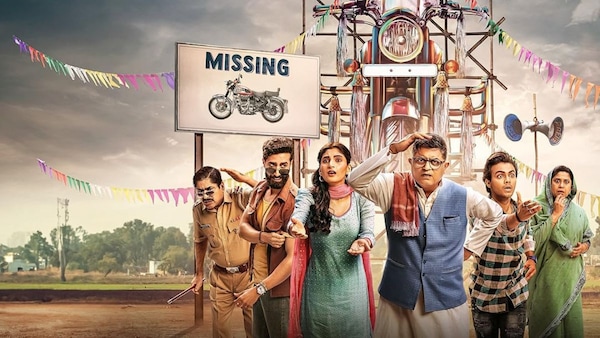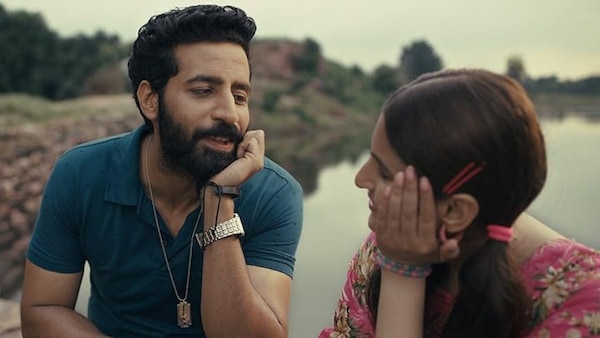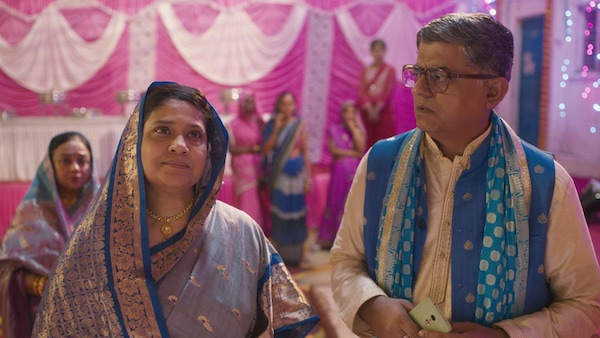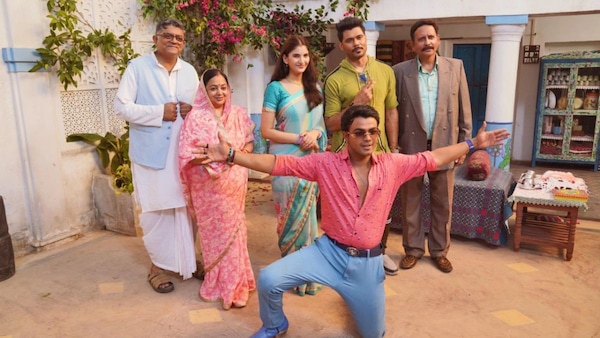Dupahiya: This Third Cousin Of Panchayat Is A Boring Mess
The nine-episode series drags on endlessly, its aimless scope and stagnant execution reducing everything—and everyone in it—to mere background noise.

Promo poster for Dupahiya.
Last Updated: 10.45 PM, Mar 08, 2025
HYPOTHETICALLY, if I was drawing out my blood while watching Sonam Nair’s Dupahiya, the new Amazon show that looks, feels and sounds like the third cousin of Panchayat, chances are that I would collapse first before the characters bow out. It is an extreme example but isn’t untrue. The nine-episode series is so long and winding, so unending in scope and stagnant in execution, so filled with people who do nothing more than occupy space that all of it becomes ambient noise after a point. Again, an extreme example but not untrue.
Dupahiya is what one would dub as ‘family entertainer’, a cuss-free work amidst an increasingly gratuitous streaming universe where plot points are becoming excuses to unleash violence. In contrast, Nair’s new series (she helmed Masaba Masaba before this) unfolds with the expressed purpose of catering to a crowd unrestricted by any kind of censorship.
The intent is so severe that the series is based in Dhadakpur, a fictional place that is touted to be India’s only crime-free village. For close to 25 years not a single crime has been reported from there. But the reputation stands to be jeopardised when a new bike goes missing.

The bike was bought as part of dowry. Banwari Jha’s (Gajraj Rao), a principal at Dhadakpur wants to get his daughter, Roshni (Shivani Raghuvanshi) married. The groom, a government employee, is based in Mumbai. This is part of her attraction (like few other women in her village, Roshni looks at the city as a site of wish fulfilment) and also the cause of her family’s worry. The man in question, Kuber (Avinash Dwivedi) demands the exorbitant bike to match up his social prestige. Banwari exhausts everything to obtain the bullet and then…it gets lost.
The premise of Dupahiya is not inventive but capable of working on whimsy. The usual Panchayatesque stripes are thrown in. There is a female village head (Renuka Shahane) who is eyeing the sarpanch position but the promotion is dependent on the village’s faultless status. There is a social media influencer aspirant Bhugal (Sparsh Shrivastava), Banwari’s son, who looks at his sister’s marriage as an easy route to Mumbai. There is Roshni’s best friend, a sensible girl with a dark complexion, who is fraught with self-doubt over her appearance. And a broken-hearted lover, Amavasya (Bhuvan Arora), who steals to fill a lack in his life.
If Dupahiya appears to go in a million ways then over the course of nine episodes it does. That itself is not the issue. Last week, Dabba Cartel on Netflix did something similar but contained itself during the runtime. Unfortunately, Nair’s show fails to do so and gets caught up in a dreary chase where it appears to be catching up with itself. The bike keeps getting lost, the underlying investigation spurs into light intermittently, Roshni’s transformation is unearned, and a sparkling idea of what social media can mean to people living in rural areas is barely explored.

Each of these is capable of being developed into a series of their own. By putting them together, Dupahiya does a disservice to all of them. As a result, commentaries about gender (like Panchayat, Dupahiya obliterates caste), self-worth, skin tone, and aspiration get muddled into a strange mish-mash where nothing comes through even though everything is thrown at the wall. In the end, it is difficult to care for a stolen bullet or a broken heart.
This is all the more baffling because Dupahiya has some of the better performances on streaming in recent times (Gajraj Rao is expectantly excellent and so is Bhuvan Arora; the latter nails the role of a brooding lover and could as well shoulder a series on his own). It is Sparsh Shrivastava, however, who is phenomenal in every scene he appears in. One could argue he is playing a variation of his role in Laapataa Ladies, a rural man who refuses to be defined by his circumstances, but there is something to be said about the way Shrivastava makes every scene he features in, counts. The actor’s turn appears independent of the show and if there is a character that invites attention beyond the series, it is him.

It is not an anomaly for one hit series to spawn similar themed shows. Panchayat is the inspiration of Dupahiya— the similarities are impossible to miss. But Nair’s new work gets too bogged down, unravelling therefore as more derivative than motivated by its source. One could have overlooked even this had it not been such a crashing bore.
Dupahiya is currently streaming on Prime Video.

 Premium
Premium